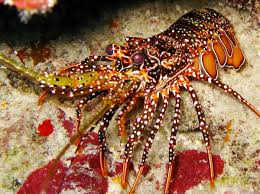Archive for July 29th, 2014

Email accounts hacked for banking information
 (CNS): the RCIPS is warning residents and businesses in the Cayman Islands to be extra vigilant if they are in the habit of conducting banking business by email or sending wire instructions to their bank by way of e-mail, following complaints that e-mail accounts are being hacked. A police spokesperson said that Gmail and Candw.ky (which is hosted by Gmail) accounts have been particularly targeted. The police are urging bank customers to follow up with their banks to confirm that they have received the correct wire instructions. Likewise, businesses and vendors/suppliers should confirm by telephone that wire instructions are legitimate.
(CNS): the RCIPS is warning residents and businesses in the Cayman Islands to be extra vigilant if they are in the habit of conducting banking business by email or sending wire instructions to their bank by way of e-mail, following complaints that e-mail accounts are being hacked. A police spokesperson said that Gmail and Candw.ky (which is hosted by Gmail) accounts have been particularly targeted. The police are urging bank customers to follow up with their banks to confirm that they have received the correct wire instructions. Likewise, businesses and vendors/suppliers should confirm by telephone that wire instructions are legitimate.
Anyone who believes that they have fallen victim to this type of crime is asked to contact the RCIPS Financial Crime Unit at 949-8797.

‘No take’ zones benefit whole reef
 (CNS): A study of no-take marine zones found that they not only help economically valuable species such as lobster, conch, and fish recover from overfishing, but may also help re-colonize nearby reef areas. The report from the Wildlife Conservation Society, represents a systematic review of research from no-take areas around the world, and comes as signatory countries of the Convention on Biological Diversity are being required to protect at least 10% of their marine territory.
(CNS): A study of no-take marine zones found that they not only help economically valuable species such as lobster, conch, and fish recover from overfishing, but may also help re-colonize nearby reef areas. The report from the Wildlife Conservation Society, represents a systematic review of research from no-take areas around the world, and comes as signatory countries of the Convention on Biological Diversity are being required to protect at least 10% of their marine territory.
The report, “Review of the Benefits of No-Take Zones” written by Dr Craig Dahlgren, a recognized expert in marine protected areas and fisheries management, was commisssioner by the WCS to describe the performance of no-take zones in Belize and in other countries to ultimately conserve highly diverse coral reef systems.
In many coastal marine ecosystems around the world, overfishing and habitatdegradation are prompting marine resource managers to find ecosystem-based solutions. The report also examines factors affecting the performance of no-take zones, such as the design, size, location, and factors of compliance with fishing regulations.
“Belize has been a leader in the region for establishing marine protected areas and has a world-renowned system of marine reserves, many of which form the Belize Barrier Reef Reserve System World Heritage Site,” said Janet Gibson, Director of the Wildlife Conservation Society’s Belize Program. “It’s clear that no-take zones can help replenish the country’s fisheries and biodiversity, along with the added benefits to tourism and even resilience to climate change.”
According to past studies, the recovery of lobster, conch, and other exploited species within marine protected areas with no-take zones, or fully protected reserves, could take as little as 1-6 years. Full recovery of exploited species, however, could take decades.
“The report provides a valuable guide for Belize’s marine managers and fishers,” said Dr Caleb McClennen, Executive Director of WCS’s Marine Program. “We also hope this effort will generate and sustain stakeholder support for these important regulatory tools.”